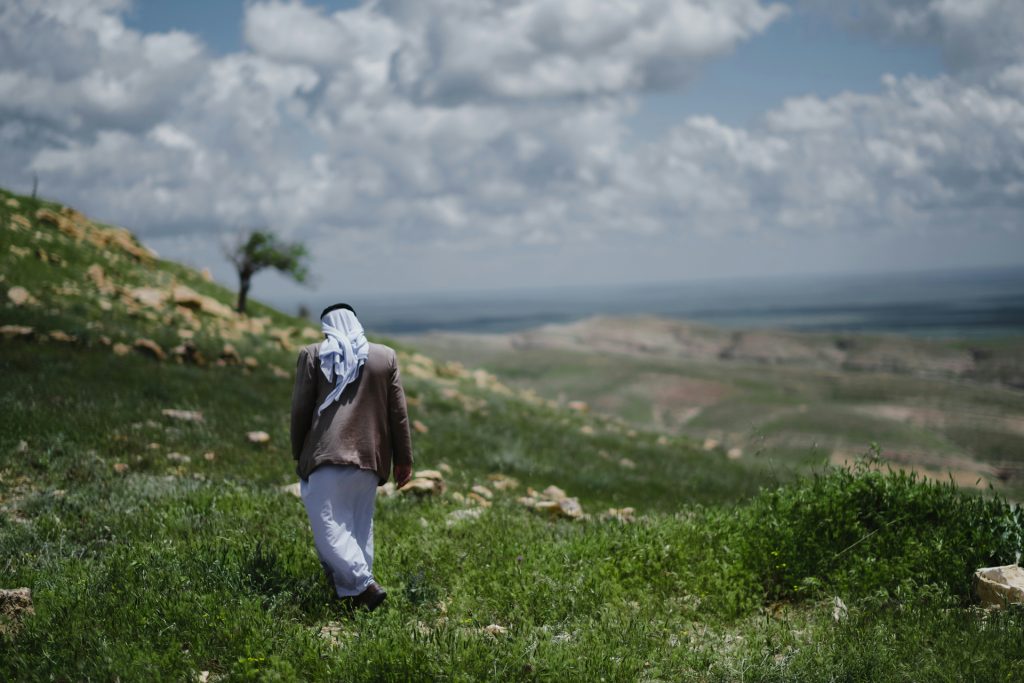The issue of missing persons in Iraq stems from decades of authoritarian rule, regional wars, sectarian conflict and, more recently, Da’esh atrocities. According to Iraqi government sources, the number of missing ranges from 250,000 to more than one million. At a human level, this means immense suffering for families of the missing. Resolving this issue has been and remains critical for national recovery and reconciliation. Since 2005, the International Commission on Missing Persons (ICMP), a treaty-based intergovernmental organization, has helped Iraqi authorities to devise a comprehensive approach to accounting for the missing and safeguarding the rights of families. This has included but is not limited to assistance in exhuming mass graves, support to identify remains through DNA analysis, and offering an ICMP-developed data management system to consolidate information.

In 2021, ICMP received a $1 million grant from the US Department of State Bureau of Democracy, Human Rights, and Labor (DRL) to implement the “Accounting for Missing Persons in Iraq through a Data-Driven and Rule-of-Law-based Approach” project. The project aimed to enhance the technical capacity of Iraqi institutions such as the Mass Graves Directorate (MGD), and the Medico-Legal Directorate (MLD), and facilitate coordination between government, civil society and families. An independent evaluation conducted by Catalystas Consulting in late 2023 assessed the project’s overall impact, based on the OECD criteria of relevance, coherence, effectiveness, efficiency, and sustainability.
The evaluation utilized a hybrid approach encompassing conventional OECD-DAC criteria and Outcome Harvesting methods. A total of 34 stakeholders provided perspectives, including ICMP staff, government officials, and representatives of international organizations, communities, NGOs and families. Document review provided by ICMP during the Inception Phase supplemented primary data.
The methodology uncovered 31 outcomes, of which 90 percent were positive, spanning the project’s two key objectives on technical capacity building and trust-building between families and authorities. Outcomes included developing ICMP’s Integrated Data Management System (iDMS), training teams in excavation and DNA analysis, identifying human remains, and fostering communication with civil society intermediaries to voice families’ concerns.

The project was especially appreciated for its achievements in regard to the deployment the Integrated Data Management System (iDMS), a missing persons data management system, institutional skill-building and stakeholder coordination. ICMP’s provision of technical assistance and facilitation of family-authority dialogue were seen as relevant and needed. The iDMS itself, along with database development and exhumations, delivered tangible outputs. New coordination channels and capacity strengthening have potential for long-term impact. However, progress was slowed by bureaucracy, fragmented coordination across Iraq’s complex political landscape, and lack of willingness on the part of some Iraqi authorities to prioritize the missing persons issue. Efficiency is further challenged because of the absence of legal status (for example through a Host State Agreement) for ICMP as an international organization in Iraq. More high-level advocacy has been recommended to keep the needs of families always to the fore.
The iDMS and capacity building efforts have strong potential sustainability if funding and political commitment are sustained. However, unresolved issues related to institutional mandates and the absence of Iraqi government budget lines specifically to address this issue threaten the financial sustainability of the overall effort. Community distrust of authorities will take a long time to develop, and this could be problematic in the long term. Although the project facilitated improved coordination and evidence-based dialogue among stakeholders, achieving coherence remains challenging due to persisting political divisions. Continuing to advocate for the Iraqi government to approach the missing persons issue in a non-biased manner was a key recommendation for ICMP to help bridge these lingering gaps. Advocacy for more inclusive community outreach by the government also emerged as an area requiring attention to uphold principles of fairness and empathy.

Despite the highly complex setting, ICMP has made vital contributions to accounting for missing persons and supporting affected families in Iraq. The scale of the challenge requires a comprehensive, long-term effort supported by political resolve to implement reforms centered on the rights of the families of the missing and justice. Coordinated political will and social recovery efforts focused on dignity and compassion are essential – along with ICMP’s technical expertise – to make headway in addressing the issue of missing persons in Iraq. Sustained advocacy for an impartial approach to the issue, communication, trust-building and local skills development are essential.

Catalystas would like to extend our appreciation to all the stakeholders who took time from their busy schedules to participate in the interviews and openly share their perspectives. These include representatives from governmental institutions, civil society organizations, NGOs, academia, families of the missing, and other international agencies. This evaluation would not have been possible without their contributions. We are also thankful for the excellent cooperation received from all involved, especially considering the increasing geopolitical situation in the Middle East during the evaluation period, and the timing constraint. We hope the evaluation provides constructive insights to strengthen ongoing efforts towards resolving the immense challenge of missing persons in Iraq. It has been a privilege to engage with dedicated organizations like ICMP and individuals passionately working to restore dignity and closure for affected families. We also extend our appreciation to all the stakeholders who took time from their busy schedules to participate in the interviews and openly share their perspectives. These include representatives from governmental institutions, civil society organizations, NGOs, academia, families of the missing, and other international agencies. This evaluation would not have been possible without their contributions.

Catalystas Consulting, Lange Voorhout 43, 2514 EC Den Haag, The Netherlands
© Catalystas Consulting. All rights reserved. Privacy and Policy
Amélie is a French-Canadian strategic development consultant with over 15 years of international experience on all continents, with the past six years focused on Asia Pacific and East Africa. Former social entrepreneur, regional NGO exec, researcher and lawyer-by-trade among other titles; she is a diverse professional currently based in Nairobi, Kenya. Amélie has worked in consulting on and off for 11 years across a range of industries and sectors, and has notably provided multiple market penetration and M&E analysis services, as well as risk assessments on the topics of forced labor and child labor in supply chains in Africa and in Asia.
Amélie completed her law degree in Quebec, Canada, and holds a Masters in International Law gained in Beijing, China. She has worked with organizations including the Thomson Reuters Foundation as Asia Pacific Manager (2019-2021), where she managed a portfolio of 250+ human rights research and advisory projects, prior to which she co-founded a social enterprise in the renewable energy sector in Rwanda, on the border of the DRC.
Amélie is proud to dedicate her time to driving social change through economic development and sustainable growth projects concretely in Southeast Asia and East Africa, and globally virtually. Amelie loves travelling, eating, and getting out of her comfort zone.
We built Lysta as an answer to one of our own problems: the need to quickly assemble teams of experts across various subject matter, geographic, linguistic, and thematic areas for projects and proposals as they arise. We quickly realized that we were not the only ones facing this challenge! With the speed that development projects require hiring, turnaround, and technical insights, we see first hand how helpful it is to have a ready-made database of vetted experts to call on.
For existing and potential Clients, you can access all consultant full profiles by signing up here as a client for free.
For consultants, adding your profile to Lysta means jumping to the top of the list for our clients in recruitment processes. We do the heavy lifting: the CV reviews, interviews, vetting, and personnel management; so when our clients come to us, they know they’re hiring someone they can trust to deliver high quality, timely results. Click here to add your profile for review.
We’re proud to be a link in the chain that connects the best of the best – don’t hesitate to reach out and see how you can put Lysta to work for you!